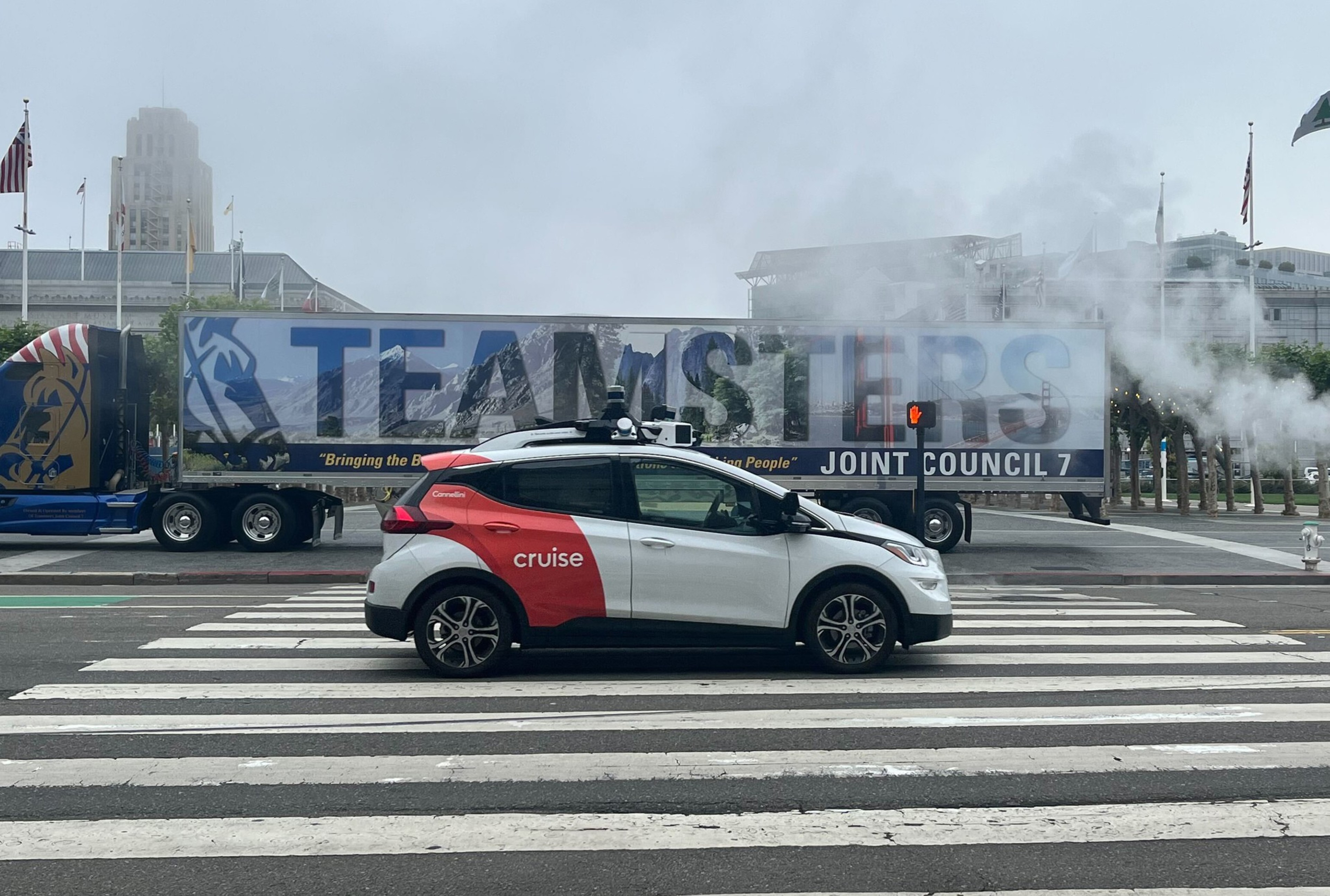A few minutes before a rally meant to drum up support for new autonomous vehicle regulation, a Cruise robotaxi pulled up in front of a large Teamsters truck trailer placed in Civic Center Plaza—a fitting metaphor for the growing conflict between organized labor and self-driving car companies.
Flanked by a number of Teamsters holding signs with slogans like “Good Jobs. Safe Streets,” labor and political leaders spoke about the importance of human expertise in trucking and raised issues around safety hazards posed by autonomous vehicles.
Ostensibly, the event was in support of AB 316 (opens in new tab), a state bill introduced by Assemblymember Cecilia Aguiar-Curry that would require autonomous vehicles that weigh more than 10,000 pounds—like semitrucks—to have a human safety driver behind the wheel.

But the event became, in part, an airing of grievances about the behavior of self-driving cars in San Francisco and the larger societal fear of ceding human control to machines.
“It’s a great day to be alive. It’s a great day to be a human being,” said Jason Rabinowitz, the president of Teamsters Joint Council 7. “This technology is not ready for prime time. This technology is a disaster. Now what happens when they take this dangerous technology, and they put it in a 10,000-, 20,000-, 80,000-pound truck?”
The California Public Utilities Commission has twice delayed a scheduled vote for unlimited expansion of Cruise and Waymo robotaxis in San Francisco amid growing opposition from local public officials and a rash of protests. The vote is currently slated for Aug. 10.
Cruise and the Teamsters were previously allied, but labor sources said there was a rift between the two over support of AB 316. The rally was being held prior to a California Department of Motor Vehicles workshop in San Francisco (opens in new tab) that discussed the regulation of autonomous trucks.
Local politicos, including Mayor London Breed and Supervisors Aaron Peskin, Shamann Walton, Connie Chan, Ahsha Safaí and Rafael Mandelman, also showed up in support of the labor action.
Chan has introduced legislation (opens in new tab) that would regulate how autonomous vehicles involved with deliveries can use public charging stations. The proposal would create a specific category in the planning code for autonomous vehicles, which Chan said is an important step for developing a local regulatory structure for the technology.
“However the state regulates, we must follow. But it doesn’t prevent us from being more stringent than the state,” Chan said in an interview. “We’re starting with delivery services, but once we have the definition, then we can talk about taxis and everything else.”
Dressed in a Teamsters hoodie, Breed made some of her most strident public comments on the impact of autonomous vehicles. Although she proudly pointed to San Francisco’s status as a hub for innovation, she noted that “the other side of that is the responsibility for regulation.”
“There is no way we should even be having a discussion about trucks or larger vehicles until we deal with what we are trying to deal with on the ground,” Breed said, noting instances where the vehicles have blocked fire stations, public transit or encroached into active fire scenes.
“Let me also say, with all of these new technologies, what happens to the people? What happens to the blue-collar workers? What happens to the folks who need to feed their families?”
